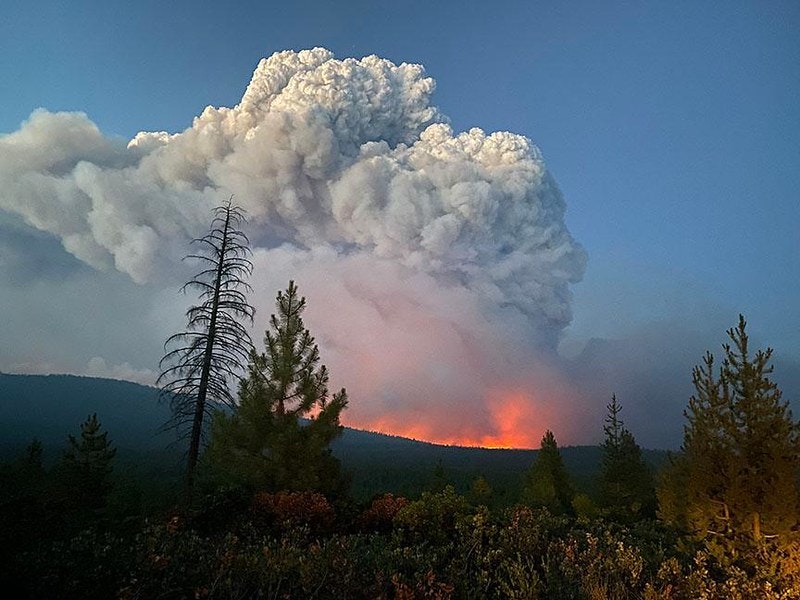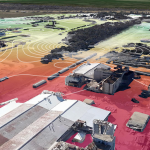Carbon Offsets Have a Huge New Problem—Wildfires
As if the world of calculating forest and natural assets to be used as carbon offsets for big businesses isn’t complicated enough, now there’s a huge new, unexpected issue. Wildfires are threatening the underlying nature itself.

A pyrocumulus cloud from Oregon’s Bootleg Fire can be seen for miles as it burns in the Freemont-Winema National Forest. As of Thursday night, the fire had burned more than 400,000 acres, including forest that had been preserved to compensate for greenhouse gas emissions elsewhere. Photo: National Interagency Fire Center.
The wildfires in the American West this past summer, including one big fire in Southern Oregon, the Bootleg Fire, torched a large percentage of land set aside for carbon offsets. Another fire in Washington State threatened an Indian reservation carbon offset project. Companies who produce greenhouse gases pay nature and forest reserves to maintain and build themselves out to help trees pull carbon from the atmosphere. The offset allows the companies to claim they are carbon neutral. The more they pollute the more they pay. A growing financial market for offsets in Europe, the UK and now China is based on the premise these assets can be correctly measured and managed.
That premise routinely comes under fire, as one forest is different from another, some trees in the same forest suck carbon at a different rate then others and, of course, there’s no way to tell how a forest used as an offset today will look 100 years from now. Now the natural land is coming under fire literally. In order to counteract CO₂’s climate-warming properties, a carbon offset project needs to promise to sequester carbon permanently. That’s because CO₂ can linger in the atmosphere for up to 1,000 years. If the carbon that is avoided or removed ends up getting released, then the program is flawed. The impact of the fires is already generating calls from advocates who argue carbon output needs to be reduced at its source, not offset with money and accounting gimmicks. Those are legitimate arguments but as we are nowhere near approaching a global scenario like that, offsets are our best shot to make polluting more expensive and ultimately reduce it.
The problem is that the offset market is developing so fast that all the parties in it — buyers, sellers, brokers — are profiting, and so are thinking of new ways to grow it. Already, ideas about securitization of carbon offset assets, where they would be packaged into tradable derivatives, like mortgages or interest rate products, are catching on.
This feeds into more participants in the carbon market, and as a result, higher prices, and then more participants on that. On the European Trading System for carbon prices, the value of futures contracts for UK carbon topped $100 (£ 72.4 pounds) in late September amid the country’s petrol delivery crisis. But none of this compares to what could happen if global leaders can advance the idea of an international carbon price and emissions trading mechanism at the United Nations’ COP26 global climate summit in Glasgow in November.
The carbon market, one way or another, is certain to develop in coming years, and with it, the potential for abuses. Those can be fought by new regulations and better policing of markets. But at present, there is nothing to stop the natural threat of fires or other disasters on the underlying offset assets. In the investing world, we call these developments Black Swans. Something completely unexpected that comes along and upends markets. Kind of like China’s sudden attack on its tech industry this past summer, and its impact on Chinese stocks worldwide. It is another sad and ironic tragedy of climate change that global warming itself is destroying the very tools we have to fight it.
About the Author—David Callaway, Callaway Climate Insights
David Callaway is founder and Editor-in-Chief of Callaway Climate Insights. He is former president of the World Editors Forum and editor of USA Today.


